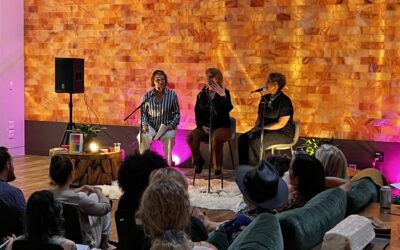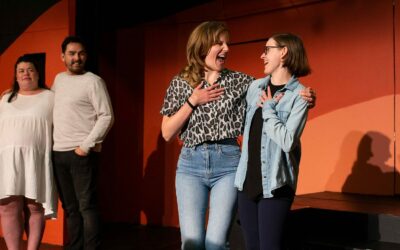Podcast: Play in new window | Download (Duration: 1:16:33 — 52.6MB)
Subscribe: Apple Podcasts | Spotify | Amazon Music
Guest Dr. Elizabeth Stanley knows stress reduction – she had developed a program used by the US military called Mindfulness-based Mind Fitness Training. Co-host Dr. Ann Kelley and Dr. Stanley discuss practical strategies that will help you build resilience, recover from trauma, heal and thrive.
“…One of the biggest gifts we each give the world around us is our own self-regulation – our own presence. Only from a self-regulated place are we able to contribute to the collective…”
Dr. Elizabeth A. Stanley has dedicated years to understanding her own traumatic experiences and extended her knowledge to others through research and teaching, including her work developing the Mindfulness-Based Mind Fitness Training (MMFT)® (utilized by the United States military).
There are many factors that contribute to the way in which we manage stress. From early developmental experiences to the lessons we learn within our culture – how we process and manage our experiences during stress and trauma plays a large role in the way we navigate the world around us. Too often we go on autopilot and ignore the impact of stress and trauma on our body. This can have a devastating impact on us personally, but also on our relationships.

Thrive even under stress
“…we kind of divorce trauma and write it off as that's what happens with weak people or people who can't handle it. So people who are really suffering that way don't really want to admit it to themselves or to anyone else because that somehow reflects on them that they're broken or wrong or weak or powerless in ways that really isn't true. Stress and trauma are actually a biological continuum, but we've divorced it this way…”
Join our Therapist Uncensored online community as a TU Neuronerd and help support getting this content out to the world.
For deeper dives into topics and extra episodes, join our online community for as little as $5 a month and get deep-dive content, ad-free feed, Ask Me Anything sessions, discounts on anything we produce, and unique study opportunities.
About Dr. Elizabeth Stanley
 Elizabeth A. Stanley, Ph.D., is an associate professor of security studies at Georgetown University. She is the creator of Mindfulness-Based Mind Fitness Training (MMFT)®, taught to thousands in civilian and military high-stress environments. Stanley is also an award-winning author and U.S. Army veteran with service in Asia and Europe, she holds degrees from Yale, Harvard, and MIT. She’s also is a certified practitioner of Somatic Experiencing, a body-based trauma therapy.
Elizabeth A. Stanley, Ph.D., is an associate professor of security studies at Georgetown University. She is the creator of Mindfulness-Based Mind Fitness Training (MMFT)®, taught to thousands in civilian and military high-stress environments. Stanley is also an award-winning author and U.S. Army veteran with service in Asia and Europe, she holds degrees from Yale, Harvard, and MIT. She’s also is a certified practitioner of Somatic Experiencing, a body-based trauma therapy.
Time Stamps
1:08 – Background on Dr. Stanley's life
5:09 – The creation of her mindfulness-based training Program
6:16 – How culture plays a role in toxic/overworked environments
22:01 – The window of stress explanation
23:20 – Three pathways that can make the window narrow
45:49 – Three principles of mindfulness
47:57 – The biggest “Pay Off Habit” recommendations
56:20 – Implementing mindfulness regulation strategies into the military
Resources
Dr. Elizabeth A. Stanley's Website
“Widen the Window: Training Your Brain and Body to Thrive During Stress and Recover from Trauma” – Purchase
“Mindfulness-Based Mind-Fit Training” – Online Courses
“Optimizing the Caveman Within Us” – Dr. Elizabeth A. Stanley's TedTalk













